Starting your journey in real estate investing begins with the right financial foundation, but most personal banks aren't built for managing rental properties. Choosing a bank that aligns with your investment goals is crucial for managing income, expenses, and growth.
We want to empower ambitious real estate investors like you to take control of their finances and scale their portfolios with confidence. This guide will help you understand your options and choose the best financial platform for your real estate business.
Key takeaways
- Establish separate bank accounts to prevent the commingling of personal and business funds, a crucial step for maintaining legal protection and simplifying your financial records.
- For accurate profitability tracking across your portfolio, open distinct checking or virtual accounts for each rental property you own.
- Designate specific savings accounts to hold tenant security deposits for compliance and maintain capital reserves for future repairs and expenditures.
- Utilize banking platforms that offer automated transaction tagging by property and Schedule E category, ensuring your records are audit-ready and maximizing eligible tax deductions.
Why real estate investors need a specialized business account
As a sole proprietor landlord, keeping your business finances separate from your personal finances is one of the most important steps you can take to steer away from any personal liability.
Not only that, a separate business bank account offers other benefits too.
- Avoid commingling of funds: Mixing your personal and business funds, known as commingling, makes accurate income and expense tracking difficult and should be avoided. This separation is especially critical for security deposits, as many states require them to be held in a dedicated account.
- Protect your personal assets: If your rental properties are held under an entity like a Limited Liability Company (LLC), keeping a separate business bank account for your real estate business helps shield your personal assets (savings, investments) from legal or financial issues related to your properties.
- Make accounting and taxes easy: A dedicated account for rental property finances makes tracking all income and expenses a breeze. This reduces time spent on manually tracking expenses on finances within your personal account. Keeping business funds separate also helps you process all the eligible claims during Schedule E tax reporting, helping you save as much as you can.
- Improve professionalism and help you scale: Maintaining a dedicated business account demonstrates financial responsibility to tenants, vendors, and lenders. Clear and organized financials also make it easier to apply for financing and grow your portfolio.
Traditional vs. virtual: Strategic banking choices for real estate
The right banking partner for your real estate business depends on whether you value in-person service and extensive lending options, or modern, integrated features with minimal fees.
Traditional banks (Brick-and-mortar)
Traditional banks often have an extensive network of physical branches and ATMs, which can be convenient if you handle cash deposits or prefer in-person support. These larger institutions are also known for robust lending products, including Commercial Real Estate (CRE) and multifamily property loans.
The trade-off is often in cost and convenience:
- Higher fees and minimum balance requirements: Traditional banks typically charge monthly maintenance fees, ranging from $10 to $95, unless you meet high minimum daily or average balance requirements, sometimes up to $100,000.
- Lower rewards: Interest rates (APY) on checking and savings accounts are generally on the lower side, often around 0.01%.
Virtual/online-only banking platforms
Digital-first platforms offer specialized tools and a better financial return for your deposits, making them increasingly popular for modern landlords.
- Lower fees and higher yields: Online-only banks generally have lower operating costs, which translates to competitive Annual Percentage Yields (APYs) on balances and often no monthly maintenance fees or minimum balance requirements.
- Integrated technology: The best online platforms are built specifically for real estate investors and include integrated tools that traditional banks lack, such as:
- Built-in landlord bookkeeping: Automated expense tracking and auto-tagging of transactions by property and Schedule E category.
- Virtual accounts (sub-accounts): Unlimited virtual accounts for organizing funds by property, security deposit, or reserves.
- Online rent collection: Integrated systems for automated rent invoicing and accepting online payments from tenants.
Banking platform selection criteria: Key features to look for
When you're comparing options, consider these critical features to ensure your financial partner supports your growth and simplifies your management:
Top 5 sole proprietor business banks for landlords
Here is a rundown of the best business banks you should consider for your sole proprietorship as a real estate investor or landlord.
Baselane
Best for: Real estate investors and landlords seeking an integrated, all-in-one financial and property management platform.

Baselane is a digital banking platform specifically built for landlords to eliminate financial busywork and streamline operations. It provides a suite of integrated tools to help you manage rental income, automate bookkeeping, and maximize returns, all without monthly fees or minimum balances.
Key features
- Specialized banking with high yield: Open unlimited virtual checking and high-yield savings accounts to organize funds by property, security deposit, or reserves, all without monthly fees or minimum balance requirements. Deposits can earn up to [v="apyvalue"] APY².
- Integrated, automated bookkeeping: All transactions are automatically categorized and tagged by property and Schedule E expense category. This process generates the necessary financial reports and simplifies tax preparation for you or your accountant.
- seamless online rent collection: Automate rent invoicing, reminders, and late fees, offering tenants multiple payment options including ACH transfers. Payments are deposited directly and quickly, typically within 2-5 days.
Baselane has completely streamlined how I manage my rental portfolio. Rent collection is automatic, expenses are tracked in real time, and I get clear financial insights without juggling multiple spreadsheets or bank accounts. It’s intuitive, landlord focused, and saves me hours each month plus my tenants love how easy it is to pay. Highly recommend to any landlord who wants to simplify their rental business and improve cash flow. ~ Alex Spino
Bluevine Business Checking
Best for: Small business banking and line of credit.
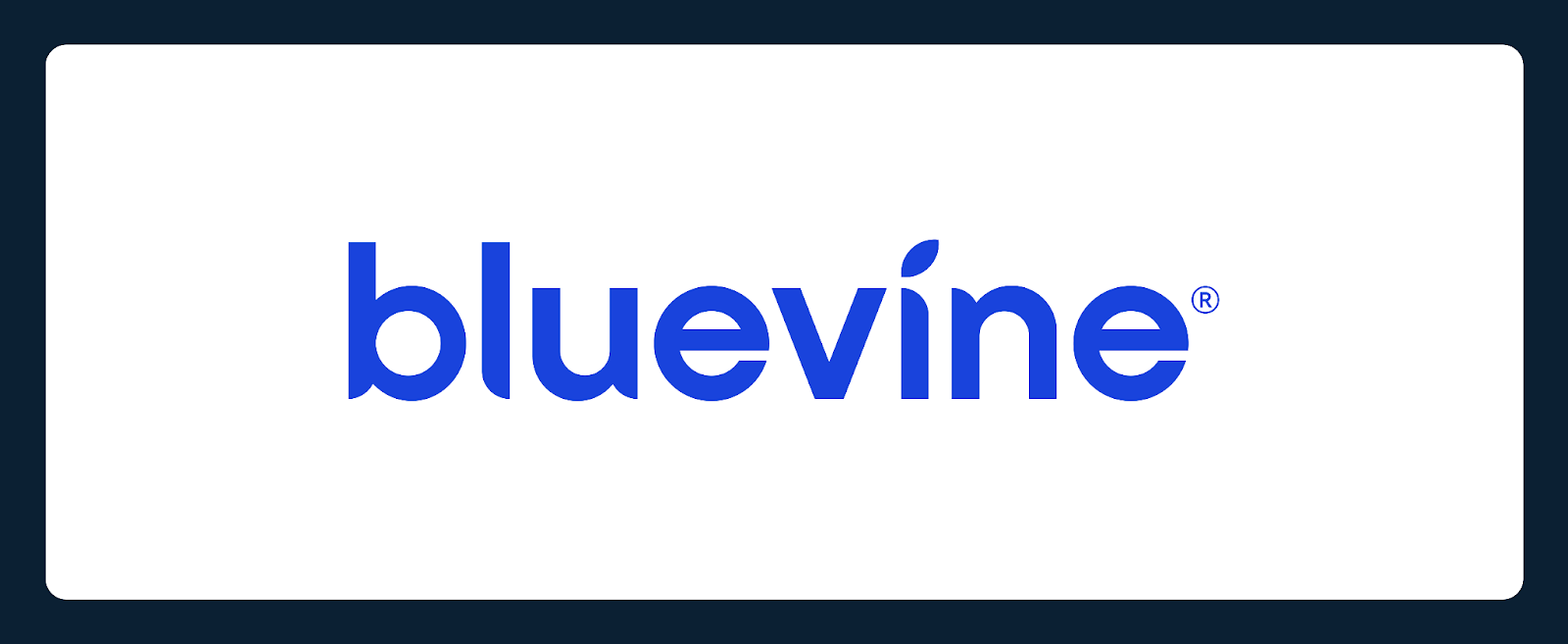
Bluevine is an online bank that offers accounts with low fees and pays interest on all balances, which can be useful for small operations. The platform is primarily for general small business use, missing integrated real estate-specific features like property-level expense tracking.
Key features
- Small business line of credit: Offers a line of credit up to $250,000 for qualifying applicants.
- Interest on balances: Provides up to 1.5% APY (up to 3.7% on paid plans) and up to 4% cash back rewards.
- Fee structure: Offers a free plan with no minimum balance requirement.
U.S. Bank
Best for: Long-term owner-occupied Commercial Real Estate (CRE) loans and diverse banking products.

As the fifth-largest bank in the U.S., U.S. Bank offers a strong choice for owner-occupied CRE loans and provides diverse personal and business banking products. However, as with traditional banks, its interest rates are generally low, and it imposes monthly maintenance fees unless high minimum balances are maintained.
Key features
- Commercial real estate (CRE) focus: A strong option for owner-occupied CRE loans.
- Extensive branch network: Operates more than 4,700 physical branches across the United States.
- Fee structure: Monthly account fees range from $0 to $30, depending on the account, with a minimum balance requirement up to $75,000 to waive fees.
Stessa
Best for: Online rent payments via Automated Clearing House (ACH) transfers.
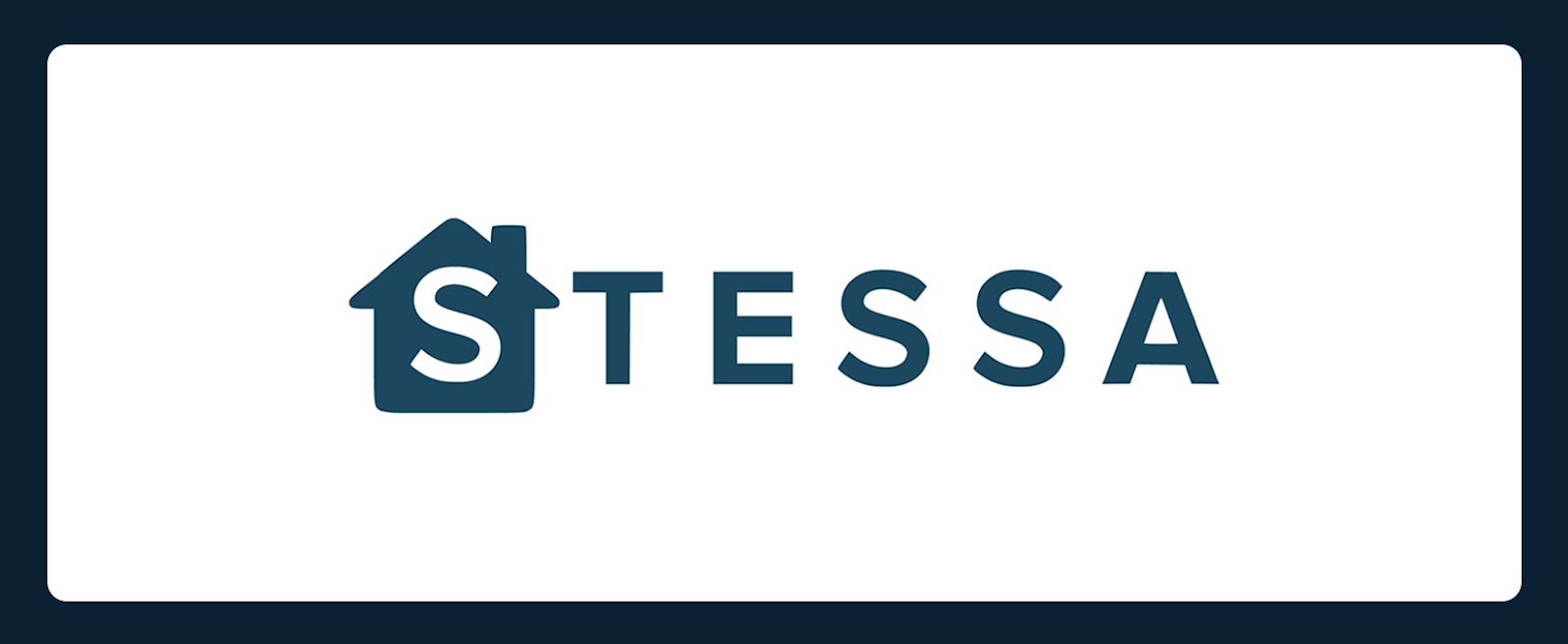
Stessa offers online banking with cash back rewards and relatively low fees, specifically geared toward landlords. The platform charges up to $28 per month for its Pro plan to access better interest rates and additional accounting features.
Key features
- Integrated rent payments: Focuses on online rent payments, but does not support debit and credit card payments like some alternatives.
- Tiered rewards: Offers 2.31% APY on the free plan, increasing to 3.98% APY for Pro subscribers.
- Potential deposit limits: Larger operations may experience issues with daily deposit limits that can be as low as $6,000.
Axos Bank
Best for: Interest-earning checking account options.
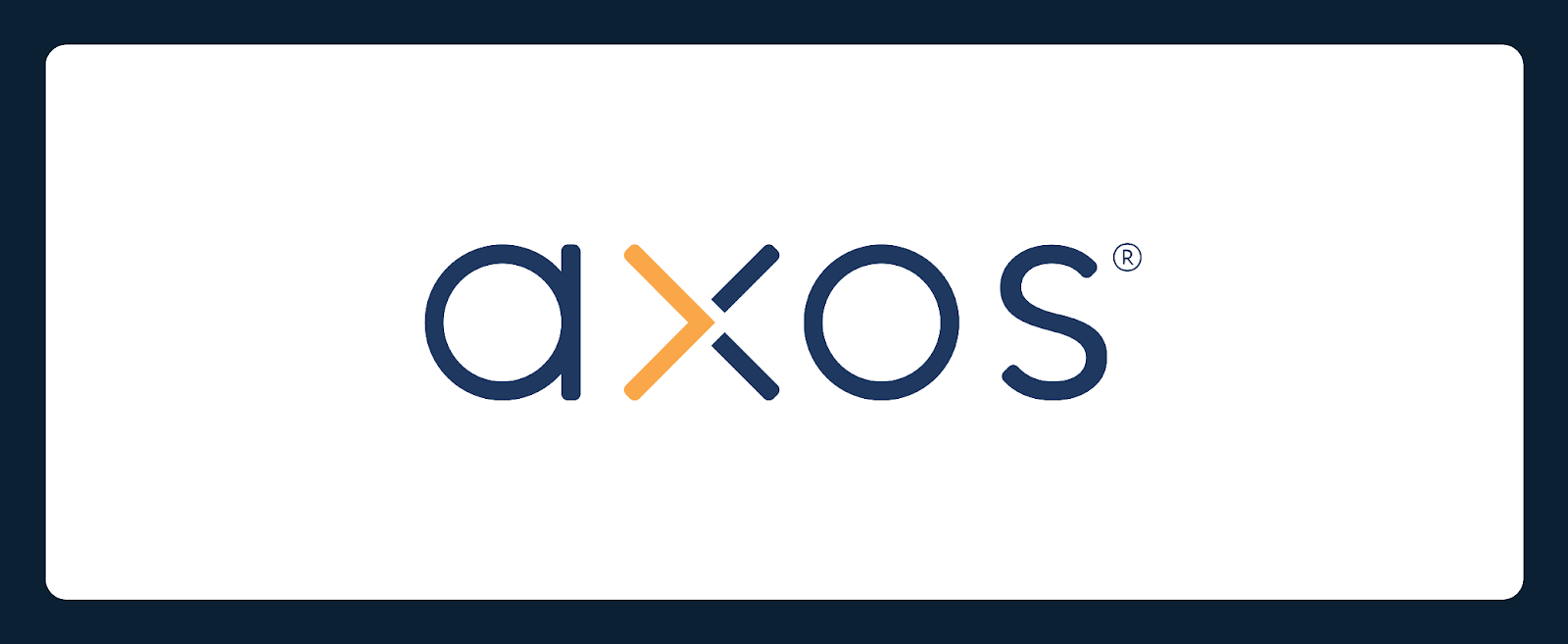
Axos is a digital bank offering both a basic checking account with no fees and an interest-earning option. Both accounts include unlimited domestic ATM reimbursements. However, the platform is not designed for rental property accounting, and it lacks the option for virtual cards.
Key features
- Interest-earning checking: The business interest checking account earns 0.10% to 1.01% APY, depending on the balance.
- Fee waiver: The $10 monthly fee can be waived with a $5,000 minimum balance.
- ATM access: Provides unlimited domestic ATM reimbursements.
Chase
Best for: Real estate investors who prioritize a strong nationwide branch presence and extensive commercial lending options.
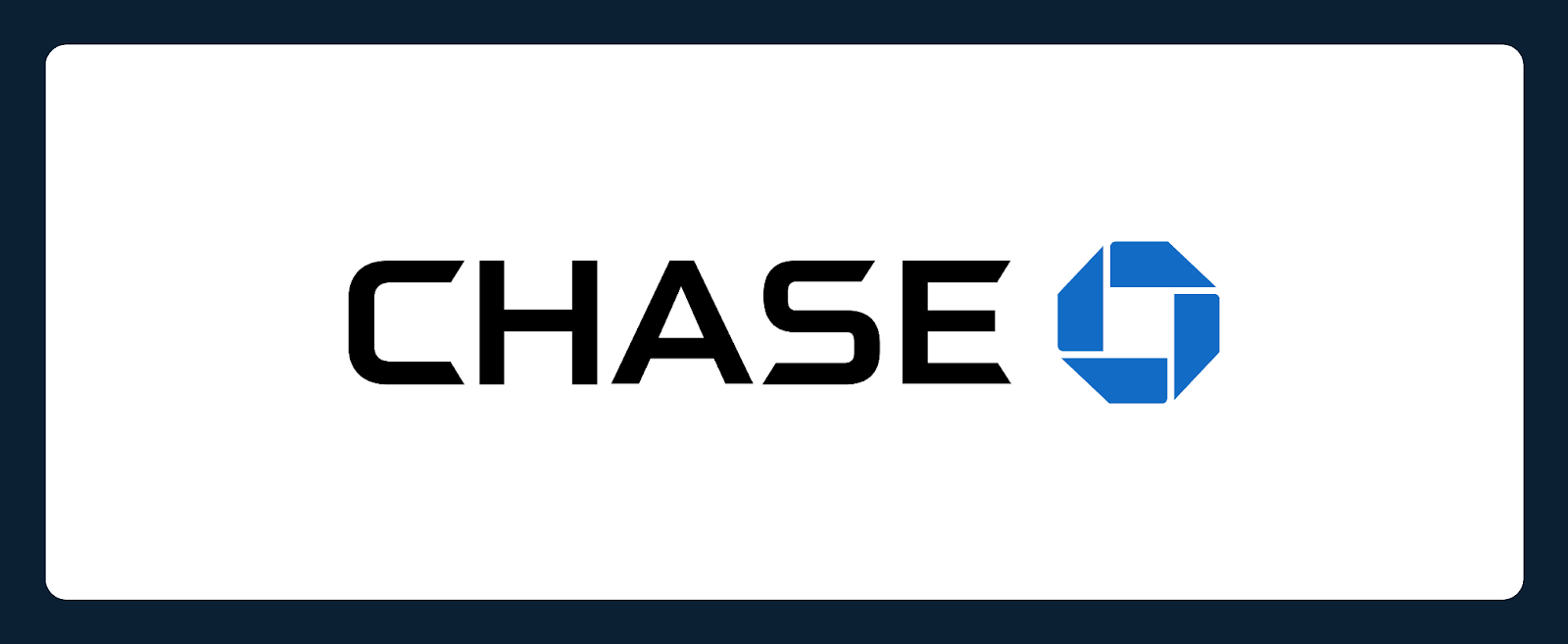
Chase is one of the largest and most recognizable banks in the country, offering robust lending products including business loans and mortgages. To avoid high fees and unfavorable interest rates, customers must meet specific minimum daily balance or monthly credit card spend requirements.
Key features
- Nationwide accessibility: Operates more than 4,700 branches and 15,000 ATMs across the U.S.
- Multifamily lending: Offers strong Commercial Real Estate (CRE) multifamily lending and business credit cards.
- Low APY: Rewards are low at 0.01% APY, with monthly fees of $15 to $95.
Wells Fargo
Best for: Investors focused on Commercial Real Estate (CRE) loans for multifamily properties who value a large physical branch network.
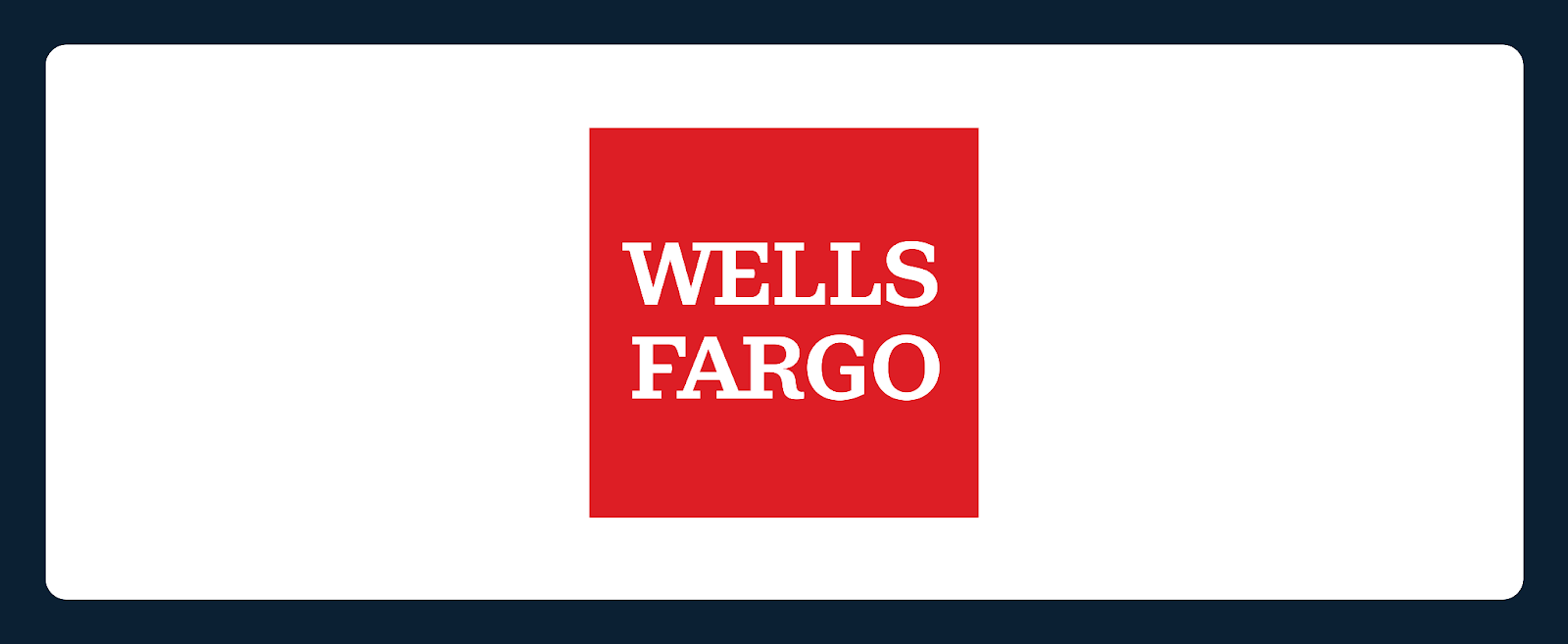
As a top-five bank in the U.S., Wells Fargo offers a full suite of products for real estate investors. Similar to other large brick-and-mortar institutions, you will find high fees, low interest rates, and high minimum balance requirements to waive monthly charges.
Key features
- Multifamily loan strength: Strong offering for multifamily property loans.
- Extensive physical presence: Operates 7,015 branches nationwide, which is beneficial if you prefer in-person banking.
- Minimum balance: The basic checking account requires maintaining a minimum $500 daily balance to avoid the $10 monthly fee.
Comparative summary: finding your ideal banking partner
How to open a sole proprietor bank account
If you are a newer investor operating under your own name, opening a separate business account is helpful to simplify tax prep and avoid commingling.
The process is often similar across all the banking platforms. The key is to have all the documents ready to reduce the application time.
To open a sole proprietorship bank account, you will typically need to provide:
- Personal identification:
- Driver's License, passport, or other government-issued ID
- Your Social Security Number (SSN)
- Business identification (if applicable):
- DBA Documentation: If you operate under a business name ("Doing Business As"), you must provide proof of your DBA registration.
- Employer Identification Number (EIN): While not legally mandatory for most sole proprietors, using an EIN instead of your SSN is recommended for enhanced professionalism, financial separation, and future growth (e.g., hiring staff or forming an LLC).
Here is how you can open your online bank for sole proprietorship quickly with Baselane:
- Sign up: Create an account with Baselane using your email address.
- Choose the entity type: Go to Banking > Add account. Then, select Individual/Sole proprietorship as your entity.
- Add the required information: Add your personal information, address, and business information (Industry, SIN, etc.)
And, that’s it. Within 2-3 minutes, you can apply for a bank, and approval often takes 2-3 business days, depending on the accuracy of your documents.
Lending options: crucial for real estate investors
A dedicated real estate banking partner should also support your growth with flexible financing options. Depending on your strategy, you may need various loan products.
Common financing options for real estate investors include:
- Conventional Mortgages and Investment Property Loans: The most common options, though investment properties usually require higher down payments and have higher interest rates than owner-occupied loans.
- Debt Service Coverage Ratio (DSCR) Loans: These loans base eligibility on the property's cash flow, not your personal income, making them ideal for experienced investors with multiple properties.
- Hard Money Loans and Bridge Loans: Short-term financing used for fix-and-flip or buy, rehab, rent, refinance, repeat (BRRRR) strategies, offering quick access to capital at higher rates.
- Commercial Real Estate (CRE) Loans: Used for financing multi-unit residential properties, often with stricter requirements and shorter repayment terms.
Best practices for structuring rental property bank accounts
To maximize clarity and tax readiness, you should structure your accounts to separate funds by purpose:
Open separate bank accounts for each rental property you own
This allows you to track income and expenses precisely for each asset, providing a clear picture of its individual profitability. By doing so, you can easily identify high-performing properties and those that may require closer attention or strategic adjustments. This method is particularly beneficial for landlords with varied portfolios.
Create dedicated sub-accounts for specific purposes
such as security deposits or capital expenditures. For example, a separate security deposit account ensures compliance with legal requirements for holding tenant funds. A capital expenditure account allows you to earmark funds for major repairs or upgrades, preventing commingling with operational cash flow. Baselane's feature of unlimited virtual accounts per property supports this advanced organizational strategy.
- Main business checking account: Used for day-to-day transactions, rent collection, and paying operating expenses (e.g., mortgage, property taxes, utilities).
- Security deposit accounts: Dedicated savings or escrow accounts to hold tenant security deposits, as per your respective state regulations.
- Reserve accounts: Savings accounts for building up cash reserves for capital improvements (like a new roof) or unexpected emergency repairs.
Regularly reconcile your accounts and categorize transactions
Utilizing banking platforms that offer automated transaction tagging and integration with accounting software will significantly reduce manual effort. This meticulous approach ensures that your financial records are accurate, up-to-date, and readily available for tax time or financial review.
Streamline your rental property finances
As an entrepreneurial, determined, and ambitious real estate investor, you should be focused on growing your portfolio, not managing unnecessary financial complexity.
Traditional banking can work, but it often means paying extra fees and relying on separate, disconnected third-party software for bookkeeping and rent collection. Baselane is purpose-built to eliminate that busywork.
We offer the solution to simplify the hardest parts of managing rental property finances, giving you back time and putting you in control. With unlimited accounts, integrated bookkeeping, and online rent collection, you'll have everything you need to manage and grow your real estate business with clarity.
Ready to get everything done? Get started with Baselane today.
FAQs
What is the best bank for a sole proprietorship?
The best bank for a sole proprietorship depends on your specific needs, but top options for landlords and real estate investors include Baselane, Bluevine, and U.S. Bank. These banks offer features like competitive APY, low fees, and specialized tools for property management.
Do sole proprietorships need a separate bank account?
Yes, sole proprietorships, especially landlords, should always have a separate bank account to clearly distinguish business income and expenses from personal finances. This practice simplifies bookkeeping, improves financial clarity, and streamlines tax preparation, offering significant benefits.
Are virtual banks good for sole proprietors who are landlords?
Virtual banks for sole proprietorship are excellent for landlords due to their low fees, high APY, and integrated digital tools for rent collection and expense tracking. While they typically lack physical branches, many offer convenient cash deposit options through partner networks, making them a strong choice.
How does a sole proprietorship bank account help with taxes for rental properties?
A dedicated sole proprietorship bank account simplifies tax preparation by providing clear, organized records of all income and expenses related to your rental properties. This separation makes it easier to track deductions, categorize transactions for Schedule E reporting, and accurately calculate your taxable income.
.jpg)











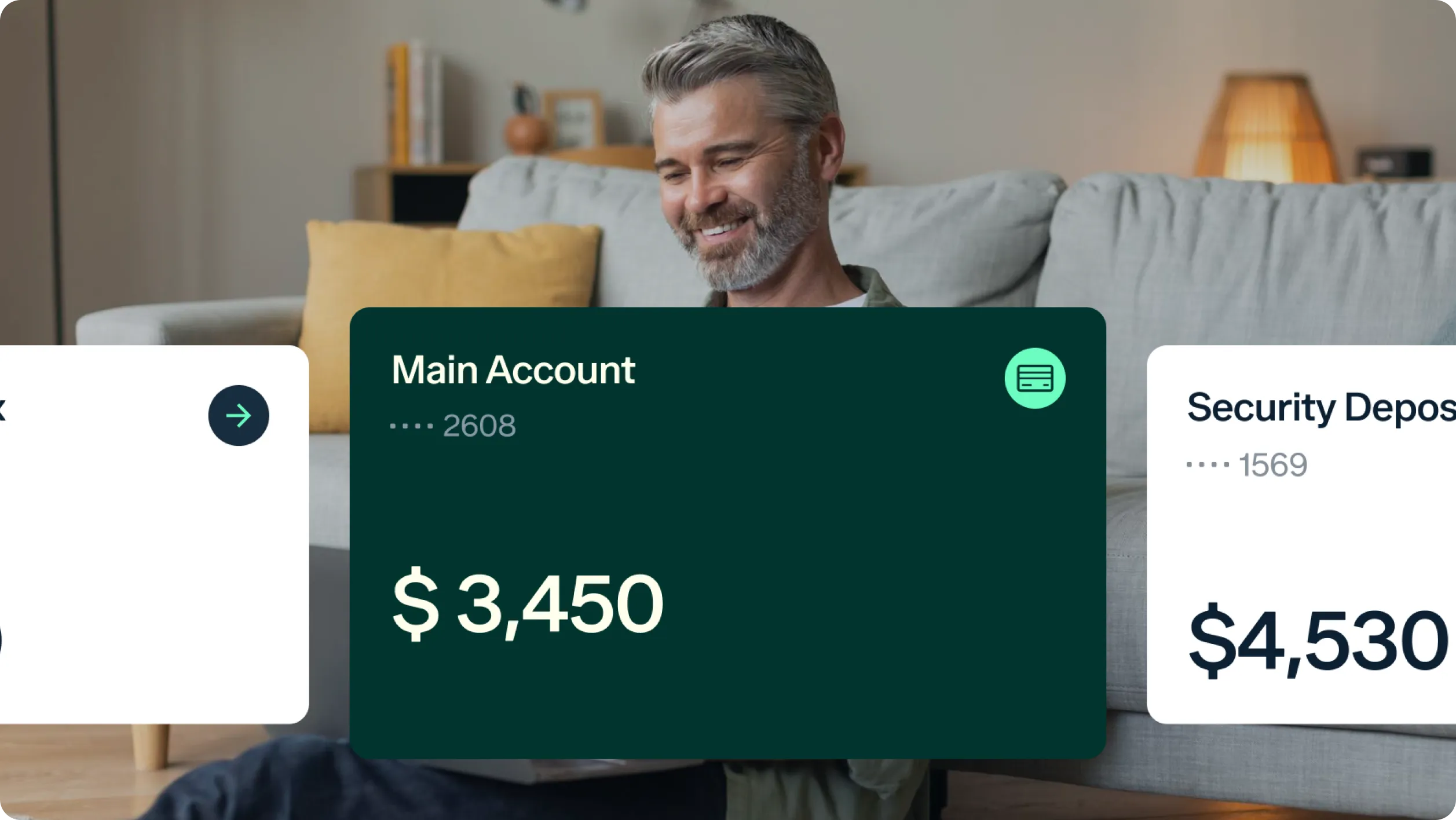




.jpg)